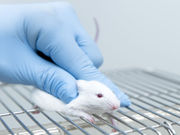Combined with immune checkpoint blockade therapy, iMVA generates synergistic antitumor effects
WEDNESDAY, Sept. 6, 2017 (HealthDay News) — Injection of inactivated modified vaccinia virus Ankara (iMVA) into tumors is effective and generates antitumor immunity, according to a study in mice being presented at the International Cancer Immunotherapy Conference, held from Sept. 6 to 9 in Mainz, Germany.
Peihong Dai, from Memorial Sloan Kettering Cancer Center in New York City, and colleagues compared the antitumor efficacy of MVA with heat-inactivated or UV-inactivated MVA in mice.
The researchers found that higher levels of interferon induction than MVA occurred with infection of conventional dendritic cells with heat-inactivated or UV-inactivated MVA via the cGAS-STING cytosolic DNA-sensing pathway. In both murine melanoma and colon cancer models, intratumoral injection of iMVA was effective and generated adaptive antitumor immunity. In STING- or Batf3-deficient mice, iMVA-induced antitumor therapy was less effective than in wild-type mice. In bilateral tumor implantation models, and in a unilateral large established tumor model, the combination of intratumoral delivery of iMVA and systemic delivery of immune checkpoint blockade generated synergistic antitumor effects. Compared with either agent alone, the combination therapy generated stronger systemic antitumor memory CD8+ T cell responses.
“Our results support the intratumoral delivery of inactivated vaccinia virus as a safe and effective cancer immunotherapy either alone or in combination with immune checkpoint blockade antibodies,” one of the co-authors in a statement.
The conference was partially funded by pharmaceutical companies; Memorial Sloan Kettering Cancer Center filed a patent application for use of MVA and iMVA as monotherapy or in combination with immune checkpoint blockers for solid tumors; one of the study co-authors is co-author on the patent application.
Copyright © 2017 HealthDay. All rights reserved.








